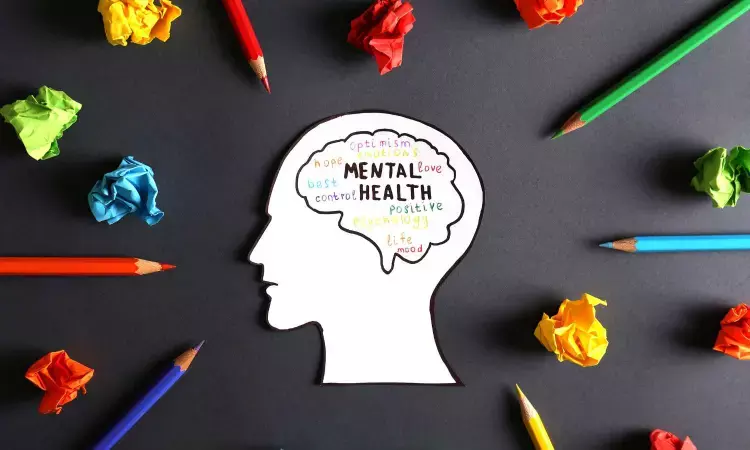- Home
- Medical news & Guidelines
- Anesthesiology
- Cardiology and CTVS
- Critical Care
- Dentistry
- Dermatology
- Diabetes and Endocrinology
- ENT
- Gastroenterology
- Medicine
- Nephrology
- Neurology
- Obstretics-Gynaecology
- Oncology
- Ophthalmology
- Orthopaedics
- Pediatrics-Neonatology
- Psychiatry
- Pulmonology
- Radiology
- Surgery
- Urology
- Laboratory Medicine
- Diet
- Nursing
- Paramedical
- Physiotherapy
- Health news
- Fact Check
- Bone Health Fact Check
- Brain Health Fact Check
- Cancer Related Fact Check
- Child Care Fact Check
- Dental and oral health fact check
- Diabetes and metabolic health fact check
- Diet and Nutrition Fact Check
- Eye and ENT Care Fact Check
- Fitness fact check
- Gut health fact check
- Heart health fact check
- Kidney health fact check
- Medical education fact check
- Men's health fact check
- Respiratory fact check
- Skin and hair care fact check
- Vaccine and Immunization fact check
- Women's health fact check
- AYUSH
- State News
- Andaman and Nicobar Islands
- Andhra Pradesh
- Arunachal Pradesh
- Assam
- Bihar
- Chandigarh
- Chattisgarh
- Dadra and Nagar Haveli
- Daman and Diu
- Delhi
- Goa
- Gujarat
- Haryana
- Himachal Pradesh
- Jammu & Kashmir
- Jharkhand
- Karnataka
- Kerala
- Ladakh
- Lakshadweep
- Madhya Pradesh
- Maharashtra
- Manipur
- Meghalaya
- Mizoram
- Nagaland
- Odisha
- Puducherry
- Punjab
- Rajasthan
- Sikkim
- Tamil Nadu
- Telangana
- Tripura
- Uttar Pradesh
- Uttrakhand
- West Bengal
- Medical Education
- Industry
Childhood maltreatment linked with multiple mental health problems

Experiencing abuse or neglect as a child can cause multiple mental health problems, finds a new study led by UCL researchers.
The research, published in the American Journal of Psychiatry, seeks to examine the causal effects of childhood maltreatment on mental health by accounting for other genetic and environmental risk factors, such as a family history of mental illness and socioeconomic disadvantage.
The first-of-its-kind research analysed 34 quasi-experimental studies, involving over 54,000 people.
Quasi-experimental studies can better establish cause and effect in observational data, by using specialised samples (eg. identical twins) or innovative statistical techniques to rule out other risk factors. For example, in samples of identical twins, if a maltreated twin has mental health problems but their non-maltreated twin does not, the association cannot be due to genetics or the family environment shared between twins.
Across the 34 studies, researchers found small effects of child maltreatment on a range of mental health problems, including internalising disorders (eg. Depression, anxiety, self-harm, and suicide attempt), externalising disorders (eg. alcohol and drug abuse, ADHD, and conduct problems), and psychosis.
These effects were consistent regardless of the method used or way in which maltreatment and mental health were measured.
The findings suggest that preventing eight cases of child maltreatment would prevent one person from developing mental health problems.
Corresponding author, Dr Jessie Baldwin (UCL Psychology & Language Sciences), said:
“It is well known that child maltreatment is associated with mental health problems, but it was unclear whether this relationship is causal, or is better explained by other risk factors.
“This study provides rigorous evidence to suggest that childhood maltreatment has small causal effects on mental health problems. Although small, these effects of maltreatment could have far-reaching consequences, given that mental health problems predict a range of poor outcomes, such as unemployment, physical health problems and early mortality.
“Interventions that prevent maltreatment are therefore not only essential for child welfare, but could also prevent long-term suffering and financial costs due to mental illness.”
Nevertheless, the researchers also found that part of the overall risk of mental health problems in individuals exposed to maltreatment was due to pre-existing vulnerabilities - which might include other adverse environments (eg. socioeconomic disadvantage) and genetic liability.
Dr Baldwin said: “Our findings also suggest that to minimise risk of mental health problems in individuals exposed to maltreatment, clinicians should address not only the maltreatment experience, but also pre-existing psychiatric risk factors.”
Researchers defined childhood maltreatment as any physical, sexual or emotional abuse or neglect before the age of 18.
Reference:
Jessie R. Baldwin,Biyao Wang,Lucy Karwatowska, Tabea Schoeler, Anna Tsaligopoulou, Marcus R. Munafò, Jean-Baptiste Pingault, Published Online:11 Jan 2023https://doi.org/10.1176/appi.ajp.20220174
Dr Kamal Kant Kohli-MBBS, DTCD- a chest specialist with more than 30 years of practice and a flair for writing clinical articles, Dr Kamal Kant Kohli joined Medical Dialogues as a Chief Editor of Medical News. Besides writing articles, as an editor, he proofreads and verifies all the medical content published on Medical Dialogues including those coming from journals, studies,medical conferences,guidelines etc. Email: drkohli@medicaldialogues.in. Contact no. 011-43720751


